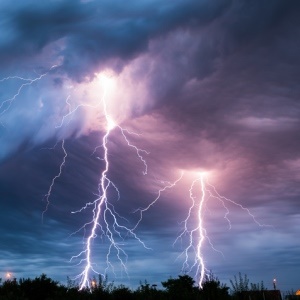
A response to Mngxitama “Cape storms the fault of white monopoly capital”
Natural disasters aren’t the fault of any one person or population group – and to say that they are is scientifically preposterous and distracts us from learning how to manage them.
People like blaming other people
When disaster strikes, we cast about for someone, rather than something to blame. It’s an understandable reaction: we continually hear via the media of crises brought about by human agency.
Also, we feel more in control of an unpredictable world if we perceive the cause of tragedy to be human-sized; human perpetrators can be punished and dissuaded from negative acts in future. Vast inscrutable meteorological and seismic forces, on the other hand, are much harder to control or made to feel guilty or sorry.
Are natural disasters worse now because of climate change?
Natural disasters grab the public’s attention, and environmentalists grab the chance to call for action against human-induced climate change. But while climate change has been accompanied overall by the worsening of extreme weather events, demonstrating the link for each specific event is not at all straightforward. Climate change can be an important causative factor, but it isn’t the only one.
Wild weather and the misery it brings have always been with us. However, the sheer mass of humans now on the planet, many of whom live in disaster-prone areas like flood plains, means that more lives and property are lost when a natural disaster hits. Two hundred years ago, disasters didn’t cause as much harm simply because populations were sparser.
Given how challenging it is for top climate scientists to unequivocally demonstrate the climate change-extreme weather link, the rest of would be wise to pause before glibly assuming such links exist.
World Weather Attribution (WWA) is an international scientific think-tank determined to improve analysis of how climate change potentially influences extreme-weather events – not least so that this can be communicated as quickly as possible to the public while such an event is fresh in the media and our minds.
But they are not always able to do so. For example, WWA concluded that Australia’s intense 2016-17 summer heat will become the norm if greenhouse gas emissions are not dramatically reduced. In the case of Kenya’s 2016-17 drought that plunged that country into a state of emergency, however, the scientists found that while temperatures involved were hotter than they would have been without the influence of climate change, there was no significant link to poor rains.
Whose fault is climate change?
Anyone who consumes products that require the burning of fuels in their manufacture is responsible for releasing carbon into the atmosphere. In other words, pretty much everyone.
Exploiting the environment to make our lives easier is not a characteristic unique to capitalists, Caucasians, or any other group one wishes to affix a label. But it is a characteristic of Homo sapiens. We all do it, and we always have. Every human that has ever used fire, for example, has, by doing so, released carbon into the atmosphere, and sometimes caused other environmental impacts besides.
Pre-Columbian Native Americans likely radically changed the natural landscape through intentional burning. The Ancient Romans were guilty of deforestation and soil erosion. The earth has been dug up for mines for thousands of years, from China to Swaziland. And there are many other historical examples. In most cases, such diverse cultures were also often deeply appreciative and respectful of nature – another characteristic common among Homo sapiens.
Of course, the damage caused by these past cultures was small potatoes – not necessarily because of their greater respect for the environment but because they didn’t yet have the technological means and numbers to devastate the entire planet as we currently are doing.
Multiple causative factors
It is true that the blame for climate change should not equally shared among all modern humans. The more affluent you are, irrespective of your nationality, ethnicity or political affiliation, the more you consume, and the more you should feel responsible for your contribution to climate change and take steps to curb your resource use.
Given that climate change is a driver in at least some extreme weather events, very broadly speaking one could argue that those with greater affluence and consumption levels are more to blame for them.
But trying to make any specific weather event or natural disaster the “fault” of any group is to ignore the multiple causative factors involved. It is also divisive, disrespectful of the tragedy and loss incurred and utterly unhelpful in supporting relief efforts and improving disaster management in future.
For that we should look instead to how remarkable people across our country, from members of emergency services to the general public, stand together with compassion and practicality when disasters hit home.
Read more:




 Publications
Publications
 Partners
Partners














